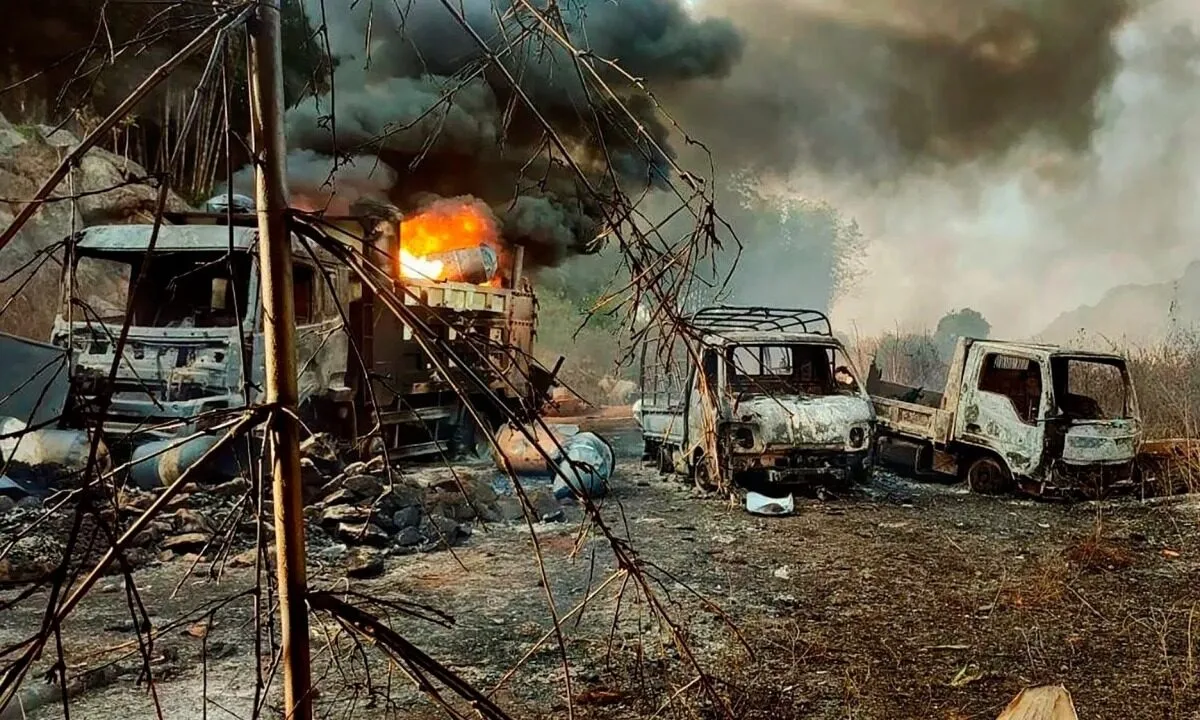The civil war in Myanmar, which has intensified over recent years, represents one of the most complex and tragic conflicts in contemporary Southeast Asia. The struggle, rooted in historical, ethnic, and political tensions, has resulted in significant loss of life, massive displacement, and widespread suffering. This article aims to provide a comprehensive overview of the ongoing conflict, examining its origins, key players, and the humanitarian crisis that has ensued.
Historical Background
Myanmar, formerly known as Burma, has long been plagued by ethnic and political strife. The country gained independence from British rule in 1948, but from the outset, it faced challenges related to its diverse ethnic makeup. Myanmar is home to over 135 ethnic groups, with the majority Burman ethnic group dominating politically and economically. This disparity has fueled longstanding grievances among ethnic minorities, leading to the rise of various insurgent groups seeking greater autonomy or independence.
The military coup in February 2021 marked a significant escalation in the conflict. The military, or Tatmadaw, overthrew the democratically elected government led by Aung San Suu Kyi and the National League for Democracy (NLD), plunging the country back into military rule. The coup triggered widespread protests and civil disobedience, leading to a brutal crackdown by the military.
Key Players
The primary actors in the civil war include the Myanmar military (Tatmadaw), ethnic armed groups, and pro-democracy forces. Each of these groups has distinct goals and motivations, contributing to the complexity of the conflict.
- Myanmar Military (Tatmadaw): The military has a long history of dominating Myanmar’s political landscape. Since the coup, the Tatmadaw has been engaged in a campaign of repression against protesters and ethnic minority groups. The military’s operations have been marked by severe human rights abuses, including arbitrary killings, sexual violence, and the burning of villages.
- Ethnic Armed Groups: Myanmar’s ethnic minorities, including the Karen, Shan, Kachin, and Rohingya, have long sought greater autonomy or independence from central rule. Many of these groups have armed wings that have been engaged in armed struggle against the Tatmadaw. The conflict has been particularly intense in regions like Rakhine State, where the Rohingya minority has faced severe persecution.
- Pro-Democracy Forces: Following the coup, a broad coalition of pro-democracy groups, including the Committee Representing Pyidaungsu Hluttaw (CRPH) and the National Unity Government (NUG), emerged to challenge the military regime. These groups advocate for a return to democratic governance and have sought international support for their cause. The pro-democracy movement has been met with violent repression but continues to garner significant domestic and international support.
Humanitarian Impact
The civil war in Myanmar has resulted in a dire humanitarian crisis. The conflict has displaced hundreds of thousands of people, creating a severe refugee crisis both within Myanmar and across its borders. Many ethnic minorities, including the Rohingya, have been forced to flee their homes, seeking refuge in neighboring countries such as Bangladesh.
The humanitarian situation is further exacerbated by the military’s tactics. Reports indicate widespread abuses, including the destruction of homes and villages, forced labor, and the use of landmines. The military’s operations have also disrupted access to essential services, including healthcare and education, further worsening the plight of affected communities.
In addition to physical violence, the conflict has had severe psychological impacts on the population. The constant threat of violence, displacement, and loss has left many people traumatized, with limited access to mental health support.

International Response
The international community has responded to the crisis with varying degrees of engagement. Some countries and organizations have imposed sanctions on Myanmar’s military leaders, aiming to pressure them to cease their aggressive actions and restore democratic governance. Humanitarian organizations have worked to provide aid to displaced populations, though access is often restricted by the conflict.
Despite these efforts, achieving a resolution to the conflict remains elusive. The military’s entrenched power, coupled with the fragmentation of resistance groups and ongoing ethnic tensions, presents significant challenges to peacebuilding efforts.
Path Forward
The resolution of Myanmar’s civil war requires a multifaceted approach. Key elements include:
- Diplomatic Engagement: Increased international pressure and diplomatic efforts are needed to encourage dialogue between the military, ethnic armed groups, and pro-democracy forces. A sustainable solution will require addressing the underlying political and ethnic issues that fuel the conflict.
- Humanitarian Assistance: Continued support for humanitarian efforts is crucial to alleviate the suffering of displaced and affected populations. This includes providing food, medical care, and psychological support to those in need.
- Accountability: Holding perpetrators of human rights abuses accountable is essential for justice and reconciliation. International bodies and organizations must continue to investigate and document abuses to ensure that those responsible are held to account.
- Support for Peacebuilding: Promoting inclusive peacebuilding initiatives that involve all stakeholders, including ethnic minorities and civil society groups, is vital for achieving long-term stability and reconciliation.
The civil war in Myanmar is a complex and deeply entrenched conflict with far-reaching consequences. Addressing it requires a concerted effort from the international community, regional actors, and Myanmar’s own citizens to work towards a peaceful and just resolution. As the situation continues to evolve, the world watches closely, hoping for an end to the suffering and a future of stability and democracy for the people of Myanmar.